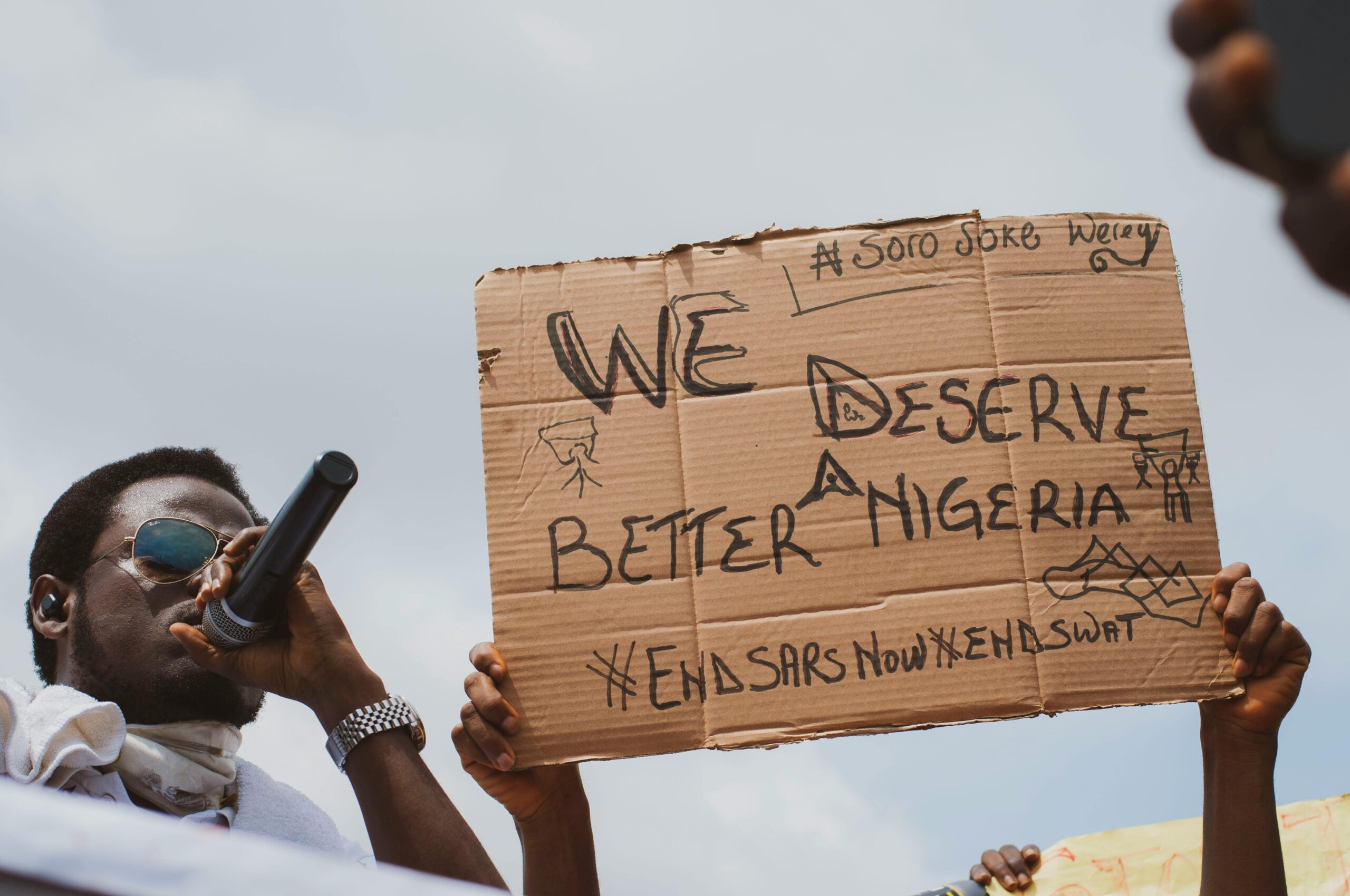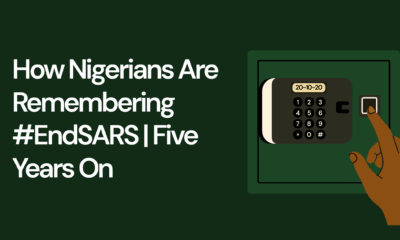Features
Jessica Ireju: After #EndSARS, How Do You Remain Hopeful?

While scrolling through Instagram recently, I came across a photo of myself from October 17, 2020. In the image, I am holding a placard in support of the #EndSARS protest, wearing a cap and a green face mask, colored in the Nigerian flag. I let out a deep sigh, not just because I remembered the stress of trekking under the blazing sun to show my solidarity with the movement, but also because I was mourning the version of myself that didn’t have to hold on to hope each morning to convince myself that Nigeria is still home. I was grieving the girl who had a mother waiting hours at the door, anxiously expecting her to come home safely that day. Just days after that photo was taken, I would learn to remember October 20, 2020, as the day when dreams died along with protesters at the Lekki toll gate.
I don’t want to recount the events of that day in writing this. The reports, the footage, the trauma have all been told. I have also written an essay about the experiences of Nigerians during the #EndSARS protest. It’s been five years, and in those five years, I have celebrated the start of a new decade, voted in my second general election, and lost my mother. But I just couldn’t forget October 20 this year. I know too well how easy it is to forget.
Death makes the headlines, but grief rarely does. No matter how public the funeral, grief remains a private affair. To this day, there has been no courtesy visit for the 48 unarmed, defenceless Nigerian citizens who were victims that day, nor for those killed at the tollgate, nor for the many others who are missing, injured, or assaulted. While numbers may make the news, behind each statistic is a person still struggling to cope with the absence of a loved one. I could relate to them.
Writing this now is my way of acknowledging our loss, the grief that lingers long after funerals are over and headlines fade. This is me attempting to remember those who never came home from Lekki Toll Gate: the mother whose child missed his birthday, the lover who never made it to Valentine’s Day, the father who never saw his son born, my mother who never saw the Nigeria she hoped for. To those who left loved ones behind, October 20, 2020, was only the beginning of a lifetime of grief.
There might be no candlelight processions anymore or memorials at Lekki Toll Gate in the coming years. But we will always remember how young Nigerians trooped out to peacefully demand what’s better from the government.
Despite the disappointment of October 20, 2020, that event sparked a desire for action among young Nigerians. In 2023, they turned out in large numbers to vote. Millennials and Gen Zers were active on social media, registering for voter cards, and even filming “Get Ready With Me” videos on their way to the polls. Many waited for hours at polling units. I felt a sense of hope, especially when I saw a photo of Efidi Bina Jennifer, an injured woman with her eye bandaged, returning to vote in her blood-stained T-shirt. I thought that surely all the sacrifices and struggles would lead to meaningful change. Did they?
Some days now, I wake up in the middle of the night, sweating, because the armoured cable on our street transformer has been stolen yet again, plunging us into three months of darkness. Other days, I’m proudly Nigerian because Hilda Baci, my country person, sets a Guinness World Record for cooking the biggest pot of Jollof. And on the days I search for my voter’s card, it’s not always in readiness to vote, but because I need an ID.
There is no template for grief, and our responses to it can vary greatly. However, one thing is certain: grief changes us. I acknowledge my grief for the people and dreams we’ve lost. I mourn my hopes for a New Nigeria—hopes delayed, but not dead. I now live like my mother did—fiercely loving, serving my family, and laughing loudly whenever I can. She taught me that courage isn’t always found in protests or resistance placards; sometimes it lies in the audacity to continue hoping and the willingness to live again, even after tragedy. After all, I am still my mother’s daughter, and death did not change that.
***
Featured Image by Tope J. Asokere for Pexels.




















